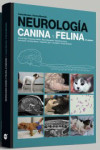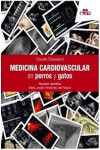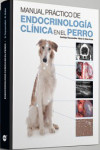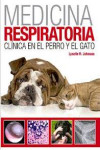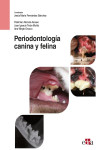KEY CONCEPTS IN SENIOR DOG CARE
Silva Torres, José Rómulo;Castells Pérez, Enrique
Datos técnicos
- ISBN 9788418020230
- Año Edición 2020
- Páginas 216
- Encuadernación Tapa Dura
- Idioma Inglés
Sinopsis
This book describes the different clinical aspects a veterinary surgeon should bear in mind when dealing with a senior patient. It addresses, by organ system, the particularities of the different diseases typical of this stage of life, the corresponding diagnostic protocols, and the special care and treatment required, with an emphasis on the most recent medical and surgical approaches and on the management of anaesthesia for surgical procedures.
José Rómulo Silva Torres
José Rómulo Silva Torres holds a PhD in Veterinary Medicine from the University of Zaragoza, and is a specialist in traumatology and orthopaedics at the Complutense University of Madrid. As a professor at the university he has lectured in surgery and reproduction and worked in clinical practice. He holds a diploma in health from the National School of Public Health.
Outside of his academic work he has served as a spokesperson for AVEPA (Spanish Association of Small Animal Specialists) for the regions of Aragon and La Rioja and as President of the Official College of Veterinary Surgeons for the province of Zaragoza.
Currently, his professional activity at the Zaragoza Veterinary Clinical Centre focuses on general surgery, orthopaedics, and traumatology, as well as endoscopy.
Enrique Castells Pérez
Enrique Castells Pérez was awarded his degree in veterinary medicine in 1996 by the University of Zaragoza. From 1998 to 2008 he worked in medical and surgical practice in the region of La Jacetania, Huesca (Valle de Hecho and Jaca Veterinary Clinical Centre), working both with small animals and meat ruminants. During this period he also worked as a substitute veterinary surgeon at Lacuniacha Wildlife Park (Piedrafita de Jaca, Huesca). Between 2008 and 2009 he worked in the commercial sector at a veterinary drug distributor in Utebo (Zaragoza). In 2015 he received his postgraduate degree in ophthalmology from the Faculty of Veterinary Medicine at the Autonomous University of Barcelona.
Since 2009 he has worked at the Zaragoza Veterinary Clinical Centre.
Índice
1. The progression of aging in dogs
The aging process
Senior dogs as patients in the clinic
How to diagnose cognitive dysfunction
Preventive treatment
2. Periodontal disease
Introduction
Aetiology and pathogenesis
Examination of the patient
Diagnosis of periodontal disease
Treatment
Prognosis and decision making
Prevention
3. Digestive disease
Gastrointestinal system
Liver
Pancreas
4. Cardiorespiratory disorders
Introduction
Diagnostic approach
Most frequent cardiac diseases in senior dogs
Most frequent respiratory diseases in senior dogs
5. Chronic kidney disease
Chronic kidney disease (CKD)
Diagnosis of CKD
Treatment of CKD
6. Endocrine diseases
Canine hyperadrenocorticism
Canine hypothyroidism
Other endocrine disorders
7. Neurological diseases
Introduction
Examination of the patient
Main orthopaedic and neurological diseases of senior dogs
8. Pain management
Introduction
Neurophysiology of pain
Chronic pain: canine osteoarthritis
9. Anaesthesia in senior dogs
Organ status in senior patients
Anaesthetic drugs in senior patients
Monitoring during anaesthesia
Postoperative recovery and care
Euthanasia in senior dogs
10. Musculoskeletal system disorders
Traumatology in older dogs
Most common joint and ligament injuries
Fracture implants
11. Ophthalmology in senior dogs
Introduction
Age-associated changes in the eyes of senior dogs
Common ocular diseases in senior dogs
Diseases of the retina
12. Diseases of the reproductive system
Diseases of the female reproductive system
Diseases of the male reproductive system
Bibliography
Otros libros que te pueden interesar
- ¿Quiénes somos?
- Gastos de envío
- Política de privacidad
- Políticas de devolución y anulación
- Condiciones Generales de contratación
- Contacto
2025 © Vuestros Libros Siglo XXI | Desarrollo Web Factor Ideas






